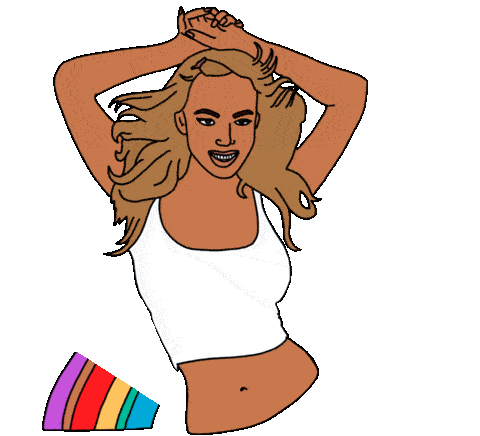- Dan Koh

- Jan 8, 2024
- 4 min read
Updated: Jan 8, 2024
i recently came across this book at Basheer Graphics, Self-made: Creative Lives in Southeast Asia (2020). as told to Stephanie Peh, its short interviews with Southeast Asian artists of many shades have been sustaining over the last few weeks. i savoured the frank, hard-earned sharing, in slow spurts, over quick lunches and late at night.
divided into the sections "Making Your Own Rules", "The Grind", and "The Bigger Picture", Self-made accompanied my deepening disillusionment with and continued, albeit declining, participation in the arts. it showed me that there are other, more meaningful ways of doing things, perhaps only once you are more advanced in your career, or if you can live with little in an affordable place. i still question, though, if i can afford to reach that stage. and to what ends, ultimately, in a collapsing world? i guess, as Beckett wrote in The Unnamable (1953), "you must go on. I can’t go on. I’ll go on". ad infinitum.
here are some quotes that resonated with me, in chronological order:

My staff has the right to meditate all day (average four to six hours) and receive a salary. ...When our minds are pure, we listen better to our bodies and the universe.
— Vo Trong Nghia, architect, Mandalay
Social media is the nature of this era. Humans live with nature. In the past, nature is forest. Now, we live in a 'nature' of buildings and social media. We cannot refuse this new nature but we can make choices.
— Wisut Ponnimit, manga artist–cartoonist, Bangkok
If a potential client asks us to pitch, we sometimes respond together with the other studios and tell them that we don't want to make three designs for them to choose.
— Andra Matin, architect, Jakarta
The last thing we want is burnout over long and crappy projects that would make the staff dread coming to work. We accept that we will never be rich as designers. Money is not the measure of happiness.
— Joyce Tai and Rex Advincula, graphic designers, Manila
Amongst many other photojournalists at the scene [the 2015 Europe refugee crisis], I cast doubt on my intentions. If my work got published, will it do any good for mankind?
— Muhammad Fadli, photographer, Jakarta
It is a selfish business to be in if you have a family because you're not creating equity that can be passed on to your children. You are constantly creating for others and at the end of the day, there will be nothing left for you. Now that I'm in the last phase of my career, can I do something that will exist outside of me?
— Francisco Guerrero, photographer-cinematographer, Manila
Success probably depends on two things in tandem: uncontrollable external circumstances and the quality and content of the work itself.
— Sonny Liew, comic artist–illustrator, Singapore
At a certain point though, I'm starting to feel like the longer I stay in Thailand, the more guilt I have about the stories that I'm putting out there. These are important stories of human rights, suppression regime and social justice, and I will continue to do them even though they are for an international readership and tend to shape the way foreigners look at Southeast Asians.
— Pailin Wedel, journalist-filmmaker, Bangkok
If I can talk to my teenage self now, I would tell him, 'You're insecure, that is why people bully you.' Of course, you don't think like that at a young age. Instead, you collect scars. My scars built my character. ...I think that's where creativity flows.
— Saran Yen Panya, designer, Bangkok
Natural indigo is clean. For us, it symbolises hope. People all over the world are starting to treasure the natural resource on our planet. They are concerned about the problems facing humanity. Where we are now, I feel the world beside us.
— Sukajit Daengchai, designer-artisan, Sakhon Nakhon
It can be psychologically challenging when you feel that the whole world is not on your side. Over the years, I learnt to adapt and accept that the furniture I design is not for the masses.
— Alvin Tjitrowirjo, product designer, Jakarta
There was a time late last year when I didn't want to go out because people kept asking me, 'What are you working on?' instead of 'How are you?' ...I'm sure they didn't mean anything bad but the questions bothered me. Are we only measured by our output? Is work the only thing that defines us?
— Samantha Lee, filmmaker, Manila
My grandmother didn't talk much but she asked me a question one day, 'What is it that you do?' I found it very difficult to explain my work to her. ...Even after running the studio for awhile and winning major awards, I still felt like a flower arranger.
— Joseph Foo, graphic designer, Kuala Lumpur
I am in a place now where I am trying to leave this earth without causing too much harm. Every plastic that has ever been made still exists today. We humans will die, reincarnate, live a couple more lives but plastic will still be here. It's not easy to change, but we have to start somewhere. Starting with ourselves is the first step we can take.
— Chitra Subyakto, fashion designer, Jakarta
I believe that if you do the right thing—if you work the land and our earth sympathetically, it will take care of you.
— Ng Seksan, landscape architect, Kuala Lumpur
From an architectural standpoint, I think we have sacrificed much of what is ours as a nation, partially due to colonisation, but mostly due to the desire to rise and become a 'first world' society. But what is the point of it all if we cannot even acknowledge the fundamental issues that exist in our daily lives?
— Wendy Teo, architect, Sarawak

